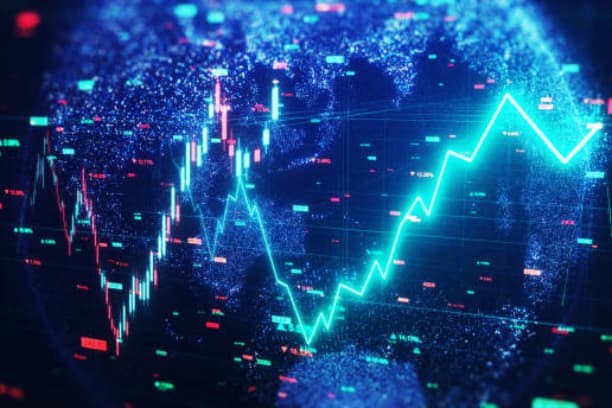Ethereum is one of the most innovative and useful blockchain platforms in the cryptocurrency market today, not only as a cryptocurrency (ETH), but also as an infrastructure on which decentralized applications (DApps) can be built. In this article, I'll take you through what Ether is, what makes its technical features so special, and how it can be used in real-life applications in the simplest, most understandable way possible. Whether you're new to crypto or an advanced blockchain player, this article will help you fully grasp the core value of Ether.

What is Ethereum?
Ether is an open platform based on blockchain technology, officially launched by Vitalik Buterin in 2015. Unlike Bitcoin, which focuses on peer-to-peer payments, Ether is designed to provide a programmable environment on which developers can build and run decentralized applications (DApps). The core cryptocurrency of Ether is Ether (ETH), which is widely used to pay transaction fees and as execution fuel (Gas) for smart contracts.
The biggest innovation in Ethernet is the "smart contract" technology. Smart contracts are self-executing protocols that trigger an action when certain conditions are met without relying on a third party, providing an efficient, secure and transparent solution for many industries.
Technical Features of Ether
Smart Contracts and Decentralization
Ethernet's Smart Contracts allow all operations to be performed automatically through code, avoiding human intervention or third-party agency involvement. For example, in an apartment rental scenario, a smart contract can automatically unlock a digital key after rent is paid, enabling efficient transactions.
Ethernet Virtual Machine (EVM)
The Ethernet virtual machine is the heart of the network, executing code submitted from any node in the world and ensuring that every transaction is verified and trusted. This makes Ethernet a global "decentralized computer".
Expandability and Upgrades
Since its launch, Ethernet has continued to make technology upgrades, such as "The Merge" in 2022, which converted Proof of Work (PoW) to Proof of Stake (PoS) and reduced energy consumption by more than 99%. Future upgrades will also focus on increasing the speed of the network's transaction processing and lowering the cost of Gas.
Ethernet Application Scenarios
Decentralized Finance (DeFi)
Ether is the cornerstone of the DeFi space, with a large number of decentralized exchanges (e.g., Uniswap), lending platforms (e.g., Aave), and stable-currency protocols (e.g., MakerDAO) built on top of Ether, allowing users to conduct financial operations without the need for a bank.
NFT and Digital Art
Ethereum supports NFTs (non-identical tokens), which allow artists to digitize and sell their work globally, with works such as Beeple's fetching tens of millions of dollars and becoming digital art milestones.
Supply Chain & Validation
Many businesses use ethereum to track the flow of goods, ensuring that every step of the process, from production to sale, can be verified. The transparent nature of ethereum is used in degree and patent certificates, eliminating the risk of counterfeiting.
Ether vs. other blockchains
Ether vs Bitcoin
While Bitcoin's primary use is digital gold for value storage and payments, Ether is a more feature-rich open platform for building diverse applications.
Ether vs Solana
Solana is known for its high transaction speeds and low fees, but Ether's strength lies in its large user base and mature ecosystem, attracting more developers and capital.
Here's how Ether compares to other blockchain technologies:
| Blockchain | Consensus Mechanisms | Transaction Speed | Ecosystem Scale | Handling Fees |
|-----|-----|- ---|-----|- -----|
| Ethereum | PoS | Medium | Max | Medium |
| Bitcoin | PoW | Slow | Medium | High | Bitcoin | PoW | Slow | Medium | High
| Solana | PoS+PoH | high | medium | low |
How do I get started with Ether?
Select Wallet
To use Ether, you'll first need a digital wallet, such as a MetaMask or Trust Wallet, which can help you securely store ETH and interact with DApps.
Buy ETH
You can buy ETH through exchanges such as OKX or Binance, and remember to choose a platform with a higher rebate rate to save on trading fees.
Explore DApps
From DeFi, to games, to the NFT market, explore the various DApps in the Ethernet ecosystem, such as OpenSea (NFT platform) or Curve (DeFi platform).
Challenges and Future Development of Ether
Despite its large ecosystem, Ethernet faces challenges, such as high Gas fees and scalability issues. In the future, Ethernet will continue to improve its performance through technology upgrades such as sharding. The emergence of more innovative applications will further consolidate its leadership in the blockchain space.
Frequently Asked Questions Q&A
Q: Is Ethernet just a cryptocurrency?
A: No, Ether is a powerful blockchain platform, of which Ether (ETH) is only one part, mainly used for paying fees and executing smart contracts.
Q: Is it safe to invest in Ether?
A: The cryptocurrency market is volatile, so you need to be careful when investing. Choosing a reliable trading platform and understanding the market situation is the key to minimize the risk.
Q: What is the difference between Ethernet and Bitcoin?
A: Bitcoin is primarily used as a digital currency, while Ether is an open platform for building a wide variety of decentralized applications.














